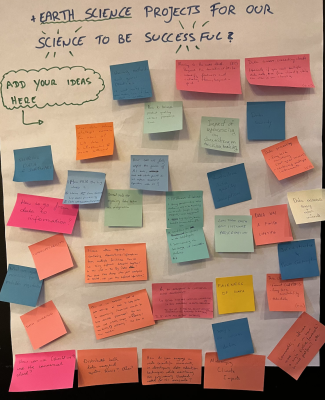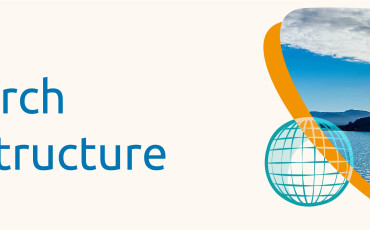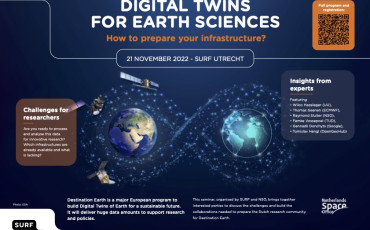Haili Hu
I primarily work with the Dutch research communities Earth Observation and… Meer over Haili Hu
We look back at a very successful seminar "Big Data Processing in Astronomy and Earth Observation", that took place 23rd of January 2024 at SURF in Utrecht. Over 60 participants from both scientific domains gathered to exchange knowledge and discuss interdisciplinary challenges.
The seminar, organised by SURF and the Netherlands Space Office, brought together the Astronomy and Earth Observation communities to explore shared challenges and synergies related to Big Data.
Experts from the two scientific domains presented impressive projects, dealing with big data from satellite missions and ground-based observatories. The presentations can be downloaded through the title links in the programme below. Find the detailed programme with abstracts here.
Programme
| Session chair | Haili Hu (SURF) | |
| 10:00 | Opening | Maurice Bouwhuis (SURF) |
| 10:15 | Jochen Landgraf (SRON) | |
| 10:35 | Anthony Brown (UL) | |
| 10:55 | Ad Stoffelen (KNMI) | |
| 11:15 | Coffee break | |
| 11:45 |
Real-time data processing for the BlackGEM Array of telescopes |
Steven Bloemen (RU) |
| 12:05 |
(Atmospheric) Clouds of Data: Ruisdael Observatory and Beyond |
Jordi Vila-Guerau de Arellano (WUR) |
| 12:25 | Data Intensive Radio Astronomy with LOFAR and SKA | John Swinbank (ASTRON) |
| 12:45 | Lunch | |
| Session chair | Irene Bonati (SURF) | |
| 13:45 | Gravitational wave data challenges for LISA | Gijs Nelemans (RU) |
| 14:05 |
Remote Sensing - Deployable Analysis Environment: power your workflow with HPC |
Meiert Grootes (eScience center) |
| 14:25 | The National Research IT Infrastructure | Natalie Danezi (SURF) |
| 14:45 | Break-out sessions | Moderator: Daniela Huppenkothen (SRON) |
| Session chair | Jolien Diekema (NSO) | |
| 16:15 | Global Water Watch | Jaap Langemeijer (Deltares) |
| 16:35 | The Euclid NL Data Center | Edwin Valentijn (RUG) |
| 16:55 | Closing & Drinks |
The question of the day was: "What data-related challenges must we solve in both astronomy and earth observation projects in order for the science to be successful?". The participants' input formed the topics of the break-out sessions, where the goal was to identify shared challenges.

| Break-out topics | Identified shared challenges |
| Interoperability |
|
| Long-term data and software storage and access |
|
| Efficient processing |
|
| AI in data processing |
|
| Deriving knowledge from data |
|
The day was concluded with drinks, where possible follow-up meetings and collaborative initiatives were discussed. We hope that this day inspires many more conversations that cross domain boundaries!
Organisation Committee
I primarily work with the Dutch research communities Earth Observation and… Meer over Haili Hu


0 Praat mee